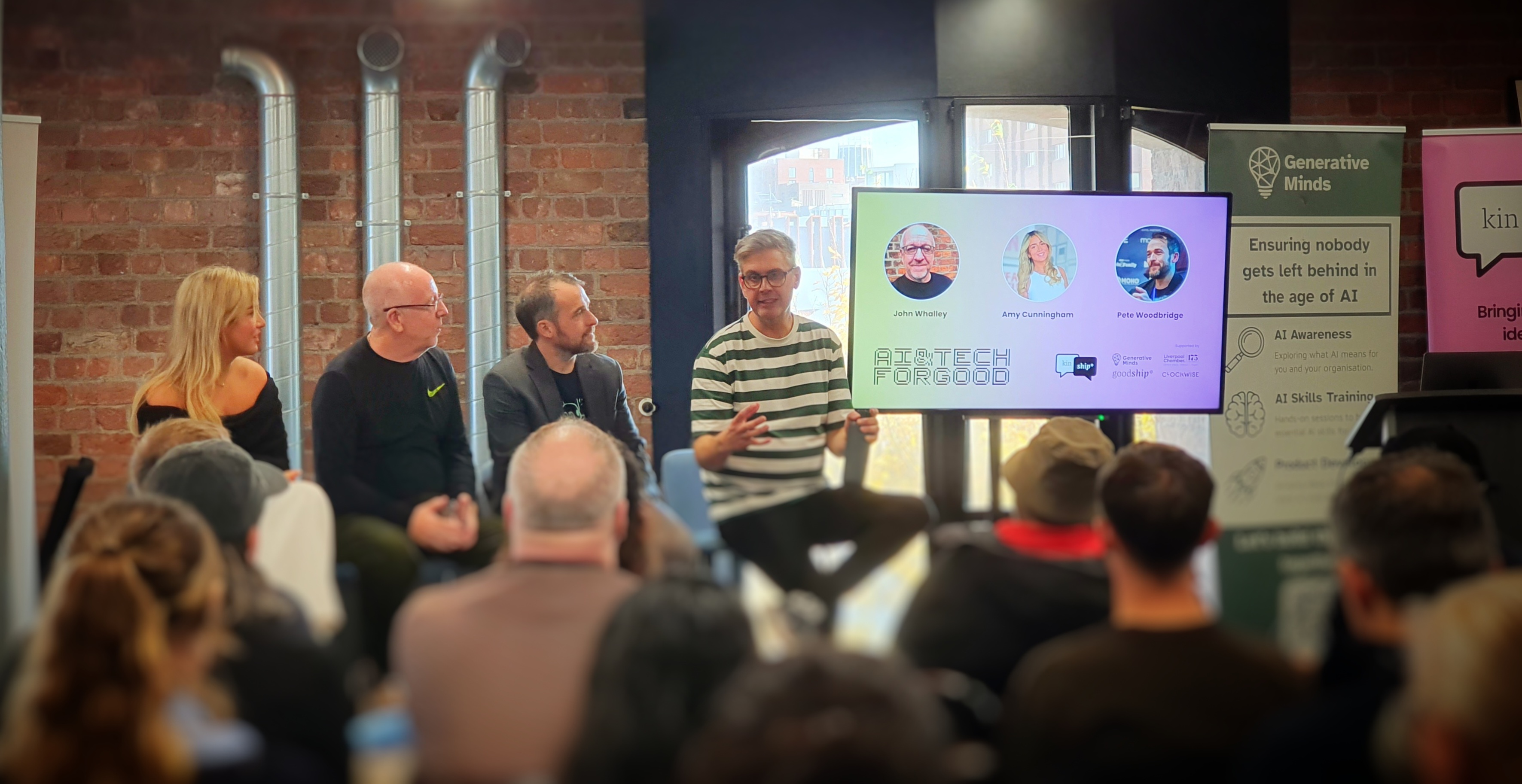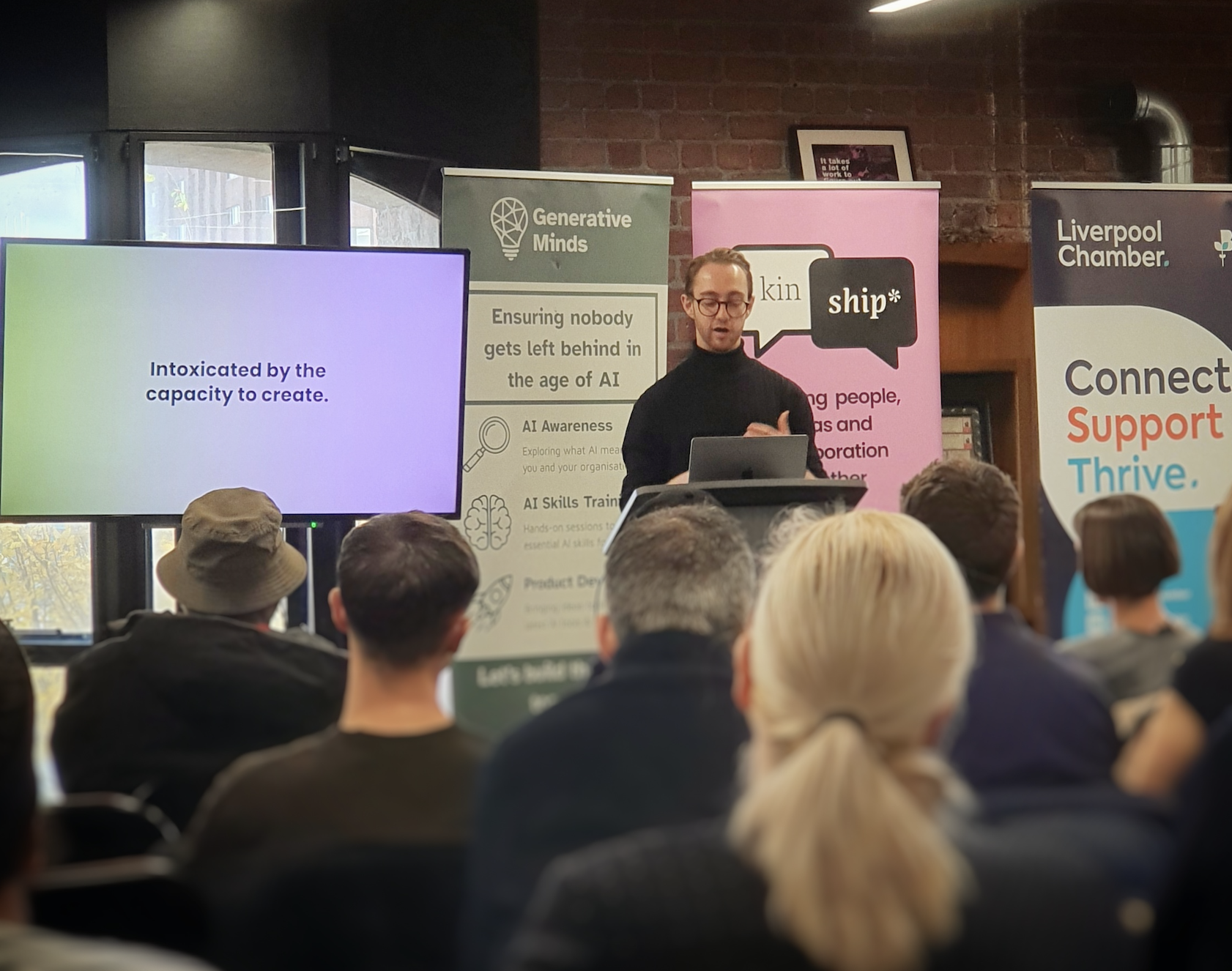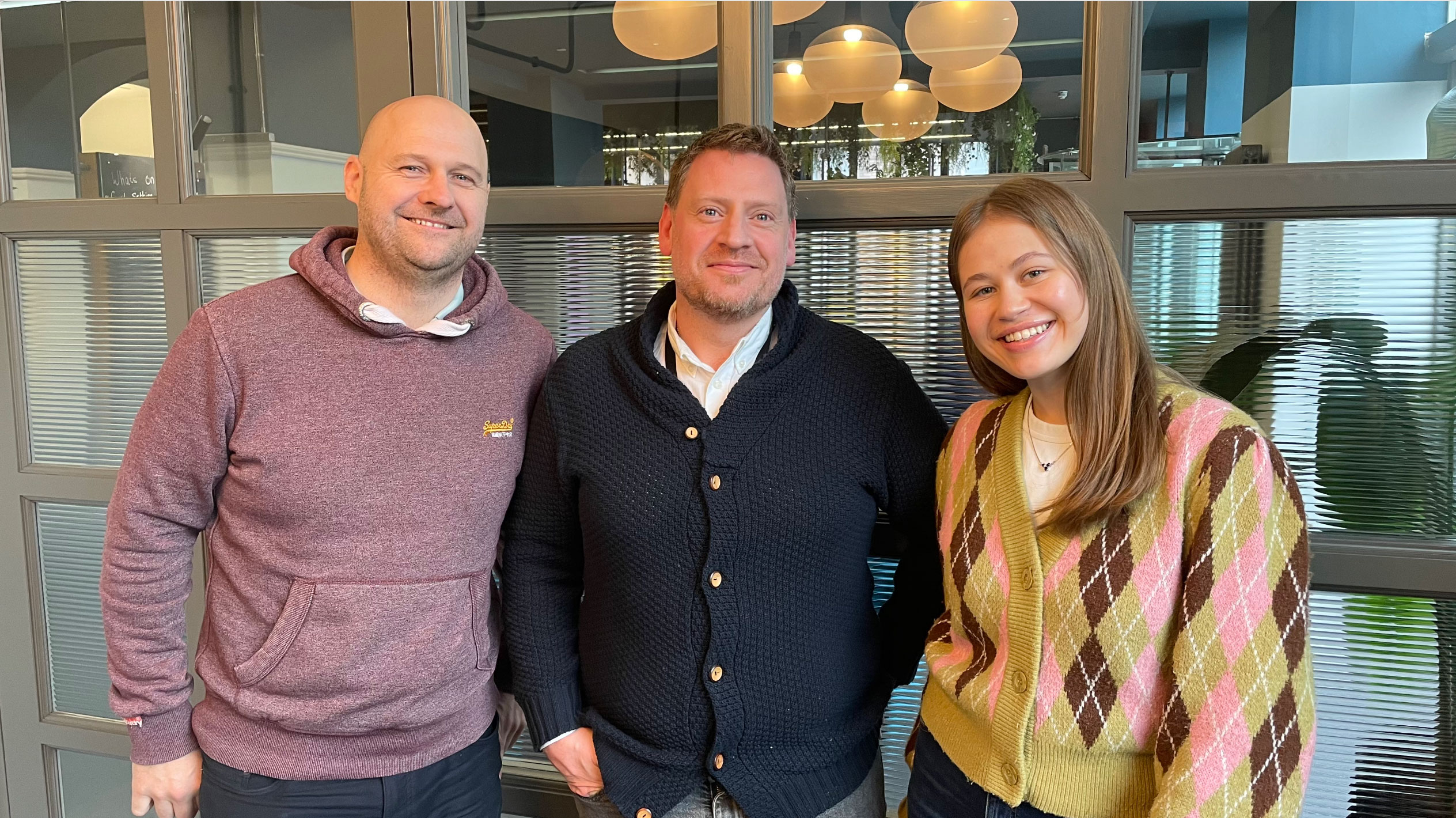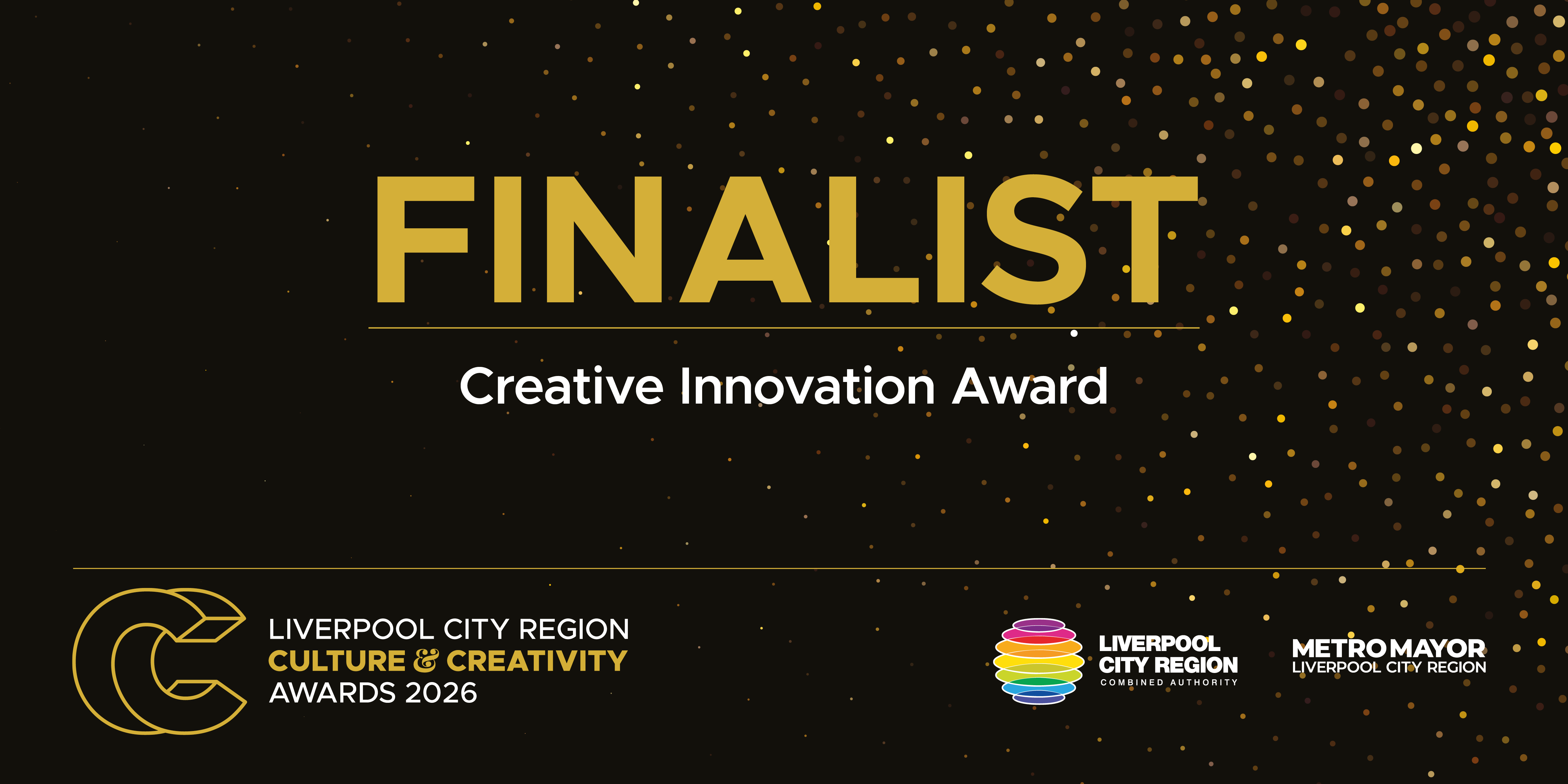AI & Creativity: It's the Human Spark, Not the Code
KinShip's AI Tech for Good session support by GoodShip* & Generative Minds was all about creativity and AI. The question was to be or not to be, to AI or not to AI?

We’re reflecting on an exceptionally insightful KinShip AI & Tech for Good session this week, supported by GoodShip* and Generative Minds, held at the dynamic Clockwise Offices. The debate, AI and Creativity wasn't just theoretical; it was a crucial reckoning on the future of work, value, and human purpose in the creative industries.
The energy was palpable, reflecting a critical shift in regional thinking. The central question posed by host GoodShip* founder Gavin Sherratt, "To be or not to be, to AI or not to AI?", quickly evolved into: How do we redefine human contribution in an age of abundant automation?
Redefining Creativity: The Indispensable Human Spark
The clearest impact of the discussion was the collective decision to anchor creativity firmly in the human domain. The panel and audience robustly concluded: AI isn’t creative; people are.
The session’s success lay in the "curiosity, openness, and willingness to learn and share." This human element is precisely what AI cannot replicate. The conversation, featuring panellists Amy Cunningham, Pete Woodbridge, and John Whalley, highlighted that AI provides utility, but human beings provide meaning.
My key takeaway was stark: “Creativity is a way of thinking, a spark that comes from people... If we let AI do all the work, everything starts to look and sound the same.” This isn't just a philosophical point; it carries significant economic implication. The commodification of content, enabled by AI, makes the truly original and distinct human perspective more valuable—and essential—than ever. The future premium is on uniqueness, hence, “Creativity is the connection, not the code.”
The Prompt, The Panic, and The Wild West
The session effectively dismantled the familiar 'creative panic' surrounding new technology. Amy Cunningham provided a powerful reframe, arguing that AI is merely the next iteration following the paintbrush, the camera, and Photoshop. The fear isn't about the end of creativity, but the re-allocation of creative labour.
Guest attendee James McLean captured the mood perfectly, describing the current landscape as feeling like the "Wild West." He summed up the creative industry's complex relationship with AI: "That feeling of 'we all love AI, but we all hate AI; we all use AI, but no one understands AI' is so real."
This complexity validates Amy’s powerful reframe: “Maybe the future of AI and creativity isn’t about who made it… But who prompted it?” This suggests the skill set is fundamentally shifting from the physical execution of craft towards communicative and strategic intent.
The tools, however fast and powerful, still fundamentally lack:
- Context and Nuance: The cultural and emotional intelligence to understand 'why' something matters.
- Timing and Taste: The judgment to know 'when' and 'how' to deploy an idea effectively.
This led to a powerful consensus: AI output is only as good as the context and direction we give it. James McLean reinforced this, concluding that the human eye is vital to curate, control, and ensure relevance and quality. "Curation is the new creation."
It's not about the f^*kin@ buttons
The Competitive Edge: Critical Human Skills
The most impactful contribution to the debate was the consensus on the indispensable human qualities that will define career success in this new landscape.
Pete Woodbridge's powerful summary, shared by John Whalley, serves as a manifesto for the modern creative professional:
“Critical Thinking, Emotional & Empathetic Intelligence, Moral & Ethical Judgement/Reasoning, Creativity and Vision, Ability to Adapt and Learn. Human Spark & Imagination.”
This list moves the focus from technical AI skills to foundational intelligence. In a world saturated with AI-generated content, the people who thrive will be those with authenticity, intention, and something meaningful to say. As Pete succinctly implied, mastering the tools is secondary to cultivating this "Human Spark." This is a call to action for educators and leaders to prioritise these uniquely human capabilities.
The Power of Forum: Shaping Our Regional Future
The lively engagement from the diverse audience—spanning leaders, creators, students, and academics, was a clear indicator of the discussion’s broad, regional impact.
Lyndsey Jayne Burkert, Associate Dean of External Engagement at Liverpool Hope University, highlighted that the event was "well attended and great for us non creative industry people too!" She praised the session as a "joy filled collaborative session with lots of knowledge exchange."
This cross-disciplinary dialogue is vital. As guest attendee Daniel Isler observed, the increased audience participation demonstrated a move from fear to active engagement with the opportunities and threats. James McLean also noted that "Connecting with others facing the same opportunities and challenges is incredibly reassuring."
By creating forums like KinShip AI & Tech for Good, we are actively ensuring that technological advancement is guided by ethical judgement and human-centric values, extending that benefit across all sectors.

A massive thank you to our expert panellists Amy Cunningham, Pete Woodbridge, and John Whalley, and co-curator Alex Keyter for his engaging demos. Thank you also to Connor Meehan and Clockwise Offices for hosting and the support from Liverpool Chamber.
Continue the Connection
If you want to continue this crucial conversation and network with this forward-thinking community, join us for our next event: Our Social on November 20th.
Photo credit - James McLean
Related articles


Explore our collection of 200+ Premium Webflow Templates


